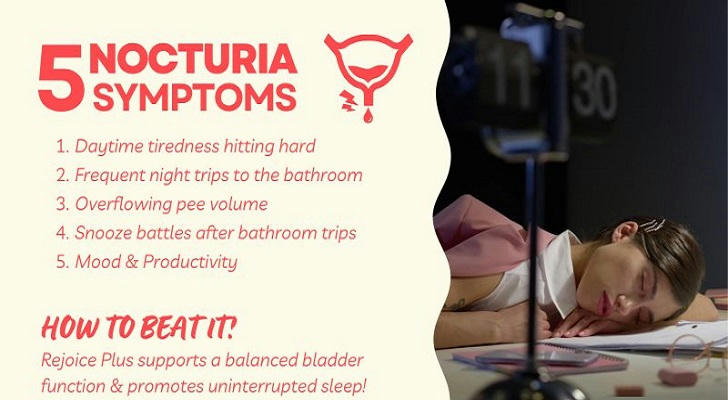Why Do So Many Older Adults Struggle with Nocturia at Night?

In the United States, many older adults experience nocturia, which is characterized by frequent urination during the night. This condition can significantly disrupt sleep and affect overall well-being. Seeking medical advice is crucial for effective management, and healthcare providers often recommend a combination of medications and lifestyle modifications.
Understanding Nocturia in Older Adults
Nocturia, or frequent urination at night, is a common issue among older adults. This condition can significantly disrupt sleep and impact overall quality of life. Understanding the causes and potential treatments can help manage this condition effectively.
Causes of Nocturia
Age-Related Changes: As people age, the bladder's capacity to hold urine decreases. This can lead to an increased frequency of urination, especially at night.
Health Conditions: Chronic conditions such as diabetes, heart disease, and urinary tract infections can contribute to nocturia. These conditions may cause increased urine production or bladder irritation.
Medications: Certain medications, particularly diuretics, can lead to increased urine output. Additionally, medications for high blood pressure or heart conditions may also have side effects that affect bladder function.
Lifestyle Factors: Consuming large amounts of fluids, especially before bedtime, can exacerbate nocturia. Alcohol and caffeine intake can also irritate the bladder and increase the need to urinate.
Sleep Disorders: Conditions like sleep apnea can disrupt sleep patterns and lead to increased awareness of the need to urinate during the night.
Impact on Quality of Life
Nocturia can lead to fragmented sleep, resulting in daytime fatigue, irritability, and decreased cognitive function. It can also increase the risk of falls and injuries, particularly in older adults who may already have mobility issues.
Management and Treatment Options
Lifestyle Modifications: Reducing fluid intake in the evening, avoiding caffeine and alcohol, and establishing a regular bathroom schedule can help manage symptoms.
Medical Interventions: Consulting a healthcare provider is essential for identifying underlying causes. Medications may be prescribed to help manage symptoms and improve bladder function.
Behavioral Therapies: Techniques such as bladder training and pelvic floor exercises can strengthen bladder control and reduce urgency.
Sleep Hygiene: Improving sleep quality through good sleep practices can help mitigate the effects of nocturia. This includes maintaining a comfortable sleep environment and establishing a regular sleep schedule.

Simple Lifestyle Changes to Alleviate Nighttime Urination
Lifestyle Changes to Consider
Limit Fluid Intake Before Bed: Reducing the amount of liquid consumed in the evening can help decrease nighttime urination. Aim to stop drinking fluids at least two hours before bedtime.
Monitor Caffeine and Alcohol: Both caffeine and alcohol can irritate the bladder and increase urine production. Limiting these substances, especially in the evening, can help alleviate symptoms.
Establish a Bathroom Routine: Try to urinate right before going to bed. This can help empty the bladder and reduce the likelihood of waking up during the night.
Maintain a Healthy Weight: Excess weight can put pressure on the bladder, leading to increased urgency. A balanced diet and regular exercise can help manage weight and improve bladder control.
Practice Good Sleep Hygiene: Creating a comfortable sleep environment and maintaining a regular sleep schedule can improve overall sleep quality, making it easier to fall back asleep after waking.
Keep a Bladder Diary: Tracking fluid intake and urination patterns can help identify triggers and patterns, allowing for more targeted lifestyle adjustments.
Implementing these simple lifestyle changes can significantly reduce nighttime urination and improve sleep quality. If symptoms persist, consider consulting a healthcare provider for further evaluation and personalized recommendations. Taking proactive steps can lead to better sleep and overall health.
Are Medications the Key to Managing Nocturia in Seniors?
Medications for Nocturia
Cholinergic Drugs: These medications can help improve bladder function by enhancing bladder contraction. They may be beneficial for seniors with reduced bladder capacity.
Anticholinergic Agents: Commonly used for overactive bladder, these medications can help reduce urgency and frequency of urination. However, they may have side effects, particularly in older adults, such as confusion or increased risk of falls.
Desmopressin: This medication can reduce nighttime urine production by mimicking the action of vasopressin, a hormone that helps concentrate urine. It may be particularly useful for seniors with nocturnal polyuria.
Diuretics: While typically used to manage fluid retention, adjusting the timing of diuretic medications can help minimize nighttime urination.
Considerations and Risks
While medications can be effective, they are not without risks. Seniors may experience side effects that can complicate their health, such as increased fall risk or cognitive impairment. Therefore, it is essential to have a thorough evaluation by a healthcare provider to determine the most appropriate treatment plan.
Medications can be a key component in managing nocturia in seniors, but they should be used alongside lifestyle modifications and under the guidance of a healthcare professional. A comprehensive approach can lead to improved sleep quality and overall well-being for older adults experiencing nocturia.
Conclusion
Nocturia is a common issue for many older adults, but it doesn't have to disrupt life. By understanding the causes and exploring treatment options, individuals can take steps to improve their sleep quality and overall well-being. If nocturia is affecting your daily life, consider speaking with a healthcare provider for personalized advice and support.
